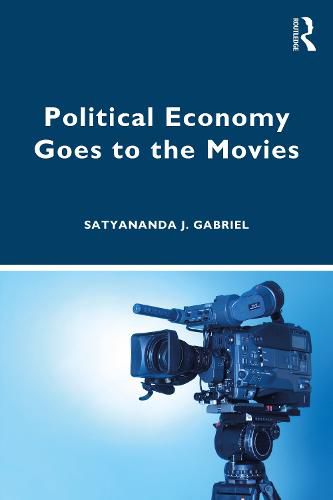Readings Newsletter
Become a Readings Member to make your shopping experience even easier.
Sign in or sign up for free!
You’re not far away from qualifying for FREE standard shipping within Australia
You’ve qualified for FREE standard shipping within Australia
The cart is loading…






Political Economy Goes to the Movies provides an introduction to political economy using a wide range of popular films and documentaries as the objects of analysis. The work helps readers to understand and analyze the economic and related political, cultural, and ecological relationships depicted in selected films. This is achieved through the lens of past and present economic theories and in the context of debates over the dynamic influence of economics on individual life chances.
Film may have more to teach us about the real world than the abstractions of certain economic theories. A world of income inequality, child labor in mills and mines, local rebellions against land seizures, and wars triggered by economic conflicts provide the context for many films mirroring real world events. Some films depict the interacting and intersecting political, economic, cultural, and ecological contexts within and between variant economic relationships, whereas other films show catastrophes such as economic depressions, disruptive social transitions, violent revolutions, and existential environmental degradation - a world in disequilibrium. Films allow us to see a panoply of human social relationships and related problems, even to explore cataclysmic moments in our species life, but not to necessarily see the why of these relationships and problems. Simultaneously, mainstream economics has severe constraints on what can be analyzed. Film exposes this weakness of the mainstream model. Twelve Years a Slave, Trumbo, The Big Short and others are analyzed for their realism by referencing documented historical social events, and behavioral economics provides further data for analyzing the realism of social interaction within the films.
Exploring events and contexts absent from the typical economics text or the basic level economics classes, this work is essential reading for students and scholars of political economy in both economics and politics departments, as well as those of pluralist economics and Marxist economics.
$9.00 standard shipping within Australia
FREE standard shipping within Australia for orders over $100.00
Express & International shipping calculated at checkout
Political Economy Goes to the Movies provides an introduction to political economy using a wide range of popular films and documentaries as the objects of analysis. The work helps readers to understand and analyze the economic and related political, cultural, and ecological relationships depicted in selected films. This is achieved through the lens of past and present economic theories and in the context of debates over the dynamic influence of economics on individual life chances.
Film may have more to teach us about the real world than the abstractions of certain economic theories. A world of income inequality, child labor in mills and mines, local rebellions against land seizures, and wars triggered by economic conflicts provide the context for many films mirroring real world events. Some films depict the interacting and intersecting political, economic, cultural, and ecological contexts within and between variant economic relationships, whereas other films show catastrophes such as economic depressions, disruptive social transitions, violent revolutions, and existential environmental degradation - a world in disequilibrium. Films allow us to see a panoply of human social relationships and related problems, even to explore cataclysmic moments in our species life, but not to necessarily see the why of these relationships and problems. Simultaneously, mainstream economics has severe constraints on what can be analyzed. Film exposes this weakness of the mainstream model. Twelve Years a Slave, Trumbo, The Big Short and others are analyzed for their realism by referencing documented historical social events, and behavioral economics provides further data for analyzing the realism of social interaction within the films.
Exploring events and contexts absent from the typical economics text or the basic level economics classes, this work is essential reading for students and scholars of political economy in both economics and politics departments, as well as those of pluralist economics and Marxist economics.